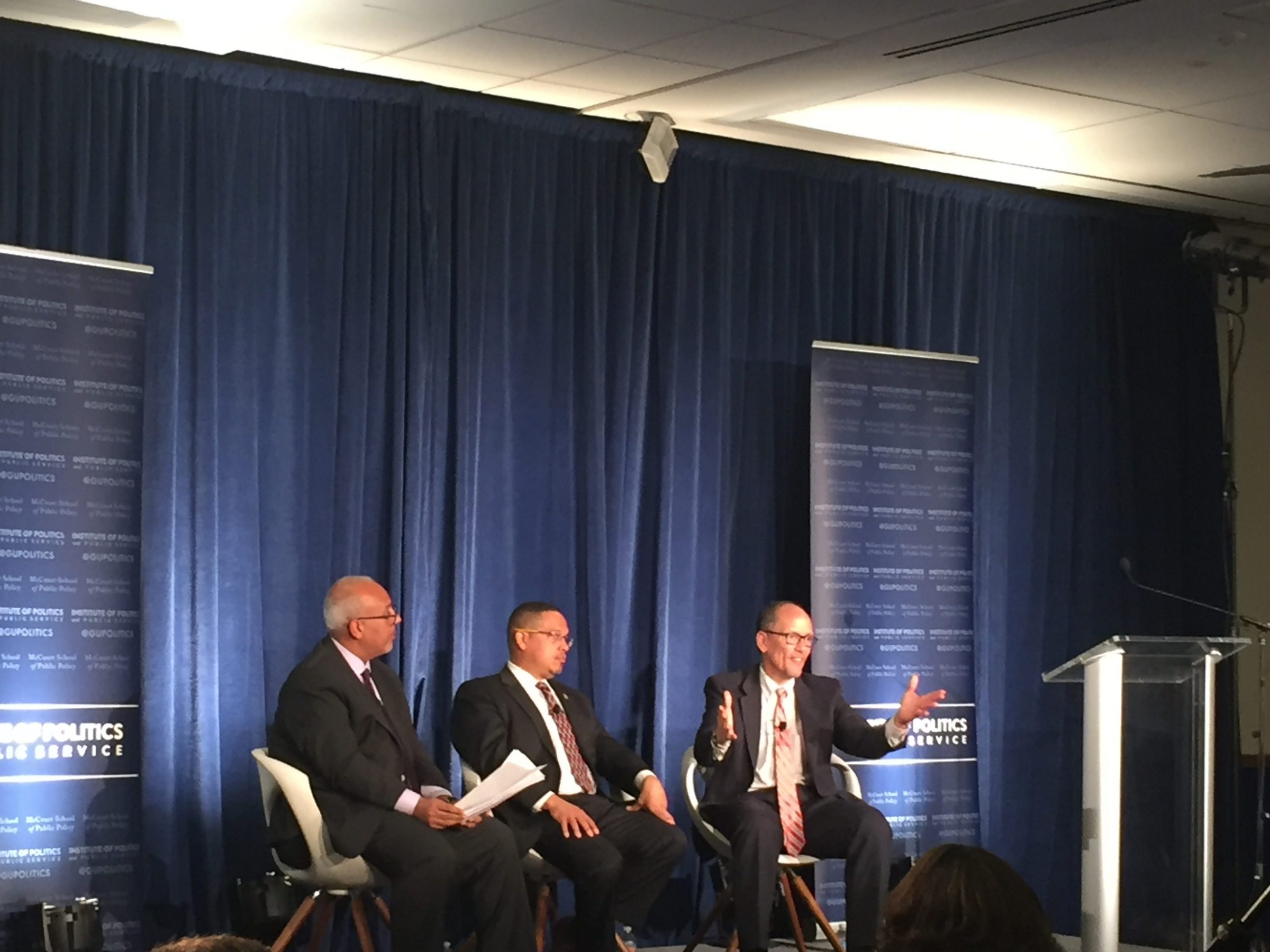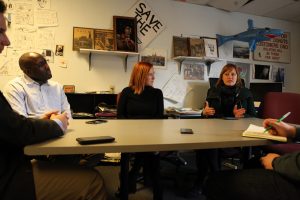The Democratic National Committee (DNC) Chair Tom Perez and Deputy Chair Keith Ellison discussed the future of the Democratic Party in a conversation with Mo Elleithee, executive director of the Institute of Politics and Public Service.
The key issue of the evening was the Democratic Party’s plans to better relate to an increasingly noncommittal millennial demographic.
Above all, Perez and Ellison said that Democrats needed to reconnect through interaction. “People have to see you to know that you’re on their side,”Perez said, “and we have to lift people up.”
Elleithee opened the March 29 discussion by challenging Perez and Ellison to define the Democratic Party and what it stands for, and whether they believe that millennials would share the same view, citing increasing voter drop off among all demographics. Ellison and Perez said that Democratic Party is working to create an American economy that helps everyone and as supports the hopes and futures of the American millennial.
Ellison and and Perez echoed each other in emphasizing a message of “inclusive prosperity” for all Americans, while also acknowledging a pressing need for the Democratic Party to reconnect to its base. According to Perez and Ellison, the Democratic Party has lost 900 seats in local, state and national legislative positions over the last eight years, and they are leading an effort to determine how to remedy the situation.
As part of their current “Listening Tour,” members of the DNC leadership have been holding similar conversations across America, and showing up is part of the party’s strategy for the future. Perez noted a recent interaction at a similar talk he held in Michigan, where one voter said that he felt like a political orphan, lacking leadership and guidance from his party.
Besides a commitment to engaging with all Americans across the country in an organic, conversational setting, DNC leaders are also spearheading an internal restructuring, focusing on extensive leadership change. Perez also highlighted a long-term millennial engagement plan, and a restructured pipeline for drawing state and local legislators into the national leadership framework.
Perez and Ellison spent a significant portion of the event taking questions from students. Questions ranged from economic strategy, relabeling and restructuring of the party itself, and reticence of millennials to commit to institutions like the DNC.
In keeping with their plan to further engage millennials, both Ellison and Perez highlighted a commitment to free college for all as a key goal moving forward, and stressed the importance of millennials to the future of the Democratic Party. “You have to electoralize your democracy” Ellison said. “When we put hope on the ballot, we win.”






